Last night I went to the première screening of an excellent new film called Just Do It. It’s a record of the direct action climate movement — Climate Camp, Plane Stupid et al. — made with the full cooperation of the activists, and it’s worth checking out, especially if you’ve never been directly involved yourself.
It is a story of people responding to the threat to their future with courage, determination, humour and camaraderie. It’s also a film that I remember existing only as a flyer, asking whether we would like to see a truly independent film developed outside mainstream production models and distributed for free. Hundreds of us donated, and I was keen to see the result.
After the screening, there was a Q&A session with the director, Emily James, but I found myself sitting there with a question in my head that was prompted by the film, but was refusing to form itself into anything concise and coherent. It was connected with that dreaded thought that everyone involved with any form of heartfelt climate action knows only too well – but what if it’s all too late?
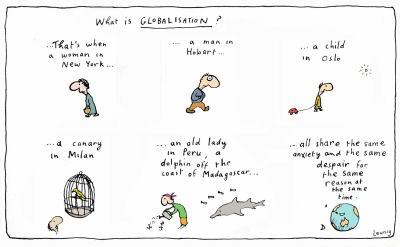
One of the most affecting moments in the film was the close-up on one inspiring activist’s face as she is asked “but does all this actually achieve anything?” She searches her mind, begins to speak, hesitates, starts again, and stops. Then her eyes seem to look into her heart and soul, and maybe even to shy away from some of the things they see there, before, as I remember, she settles upon “well, it’s better than doing nothing”.
To me, it was a sad moment, and a question that seemed unresolved, even as the film ended by reminding us that the Heathrow runway expansion has been cancelled, that the Kingsnorth coal power plant plans have been scrapped, and that projects like the exciting Transition Heathrow are growing up where only tarmac and fumes would otherwise have been.
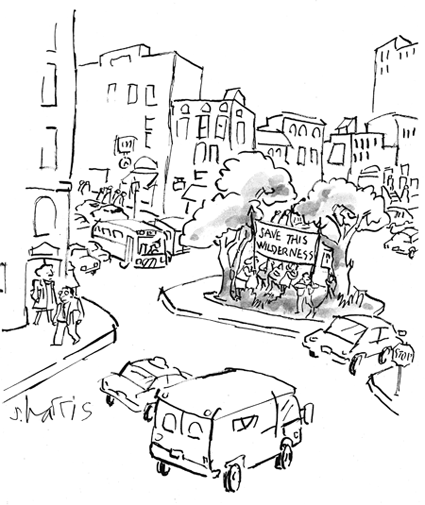
As the deserved applause rang to the credits, I tried to figure out how to formulate this sadness into a question. Eventually, as the Q&A session moved towards its end, I gave up on producing any pithy question, but resolved nonetheless to share the journey I had personally been taken on by watching the film.
And as I spoke, I realised that there is a better answer to that question – does all this actually achieve anything? – than the one spoken in the film. It is the one that is lived by the people portrayed in it.
As my mess of a question/journey/statement tumbled out, and this realisation took form, I found myself ending with a quote from Paul Wellstone, “If we don’t fight hard enough for the things we stand for, at some point we have to recognise that we don’t really stand for them.”
This seemed to ring true, with Emily James responding that she was glad that this question had been asked, and that that quote reflected her experience – that even if we were to lose our struggle for a future, we would want to have lived our present honestly as who we are. In my imagination, it seemed as though she were saying that we sometimes have to put our bodies on the line to save our souls.
The next question from the audience was a response to this, and a simple and interesting one – “so is activism therapy then?”. The response from Emily was an enthusiastic “yes”, and an explanation of how the process has helped many people to rediscover themselves and their joy in life, and of what an exceptionally supportive community there is among activists.
But I felt that this perhaps wasn’t the most interesting thrust behind the question. To me the question hit home more as “so is activism only therapy then”? In other words, are you activists only pretending to be doing this to change the world, when really you’re just trying to make yourselves feel better about the understanding that you can’t?
And to this, as to all the best questions, the answer seems to be “er, yes and no. It’s a bit more complicated than that”!
Because of course we act in order to change the world. And change it we do. Indeed, as a friend says, we cannot not change the world, whatever any of us choose to do. And as we change it, it changes us. And as it changes us, we change it. We are all activists.
And if the story we tell with these changes is one that we are proud to be telling, to the very core of our being, then activism is certainly therapeutic. But that kind of activism is not ‘only therapeutic’, it is spiritual. It is simply an expression of what we believe life to be for.
So the thought-provoking activist in the film was right – acting in some way to reflect our beliefs in our actions is indeed better than quietly dying inside, no matter what the external consequences. Perhaps Wendell Berry said it best,
“Protest that endures, I think, is moved by a hope far more modest than that of public success, namely, the hope of preserving qualities in one’s own heart and spirit that would be destroyed by acquiescence.”
But this is different from those times when activism is based on a lie – when acting is simply easier than admitting that you don’t really believe that these actions can create the change you want to see. This kind of activism probably deserves to be challenged as ‘only therapy’, and a dangerous, deceitful kind of therapy at that.
…And of course there’s only one reason why that audience question struck a painful chord for me, and prompted this rare blog post. It’s because I’ve indulged in a bit of that in my time – ignoring the quiet inner voice that whispers the truth, telling me that the course I have chosen is futile, or counter-productive, or simply no longer a reflection of my highest truth. As Vanessa Spedding has it,
“It would be interesting if all campaigners did this: stopped, went home, and considered what we are really doing with our time and our ideas. Striving to be true to ourselves would seem to be a sensible first goal.”
This is exactly what I am trying to do at present, hence the lack of speaking, writing etc of late. I am very much in a listening phase, rather than a speaking one, and that feels very right. After last night’s interesting excursion, I have just ordered a copy of the provocative Deep Green Resistance, and will also be keeping an eye on the blog of one lady who is trying to find something more effective altogether than resistance. I will let you know how we get on.

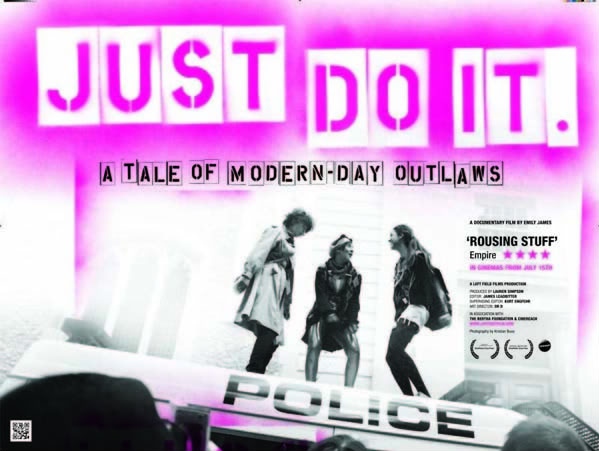

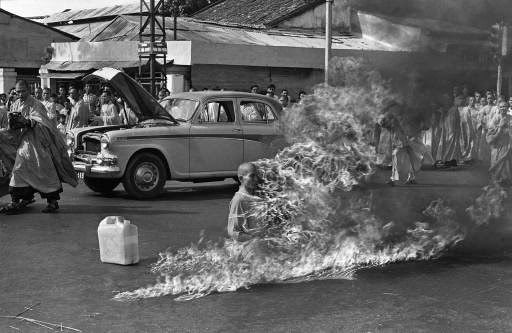
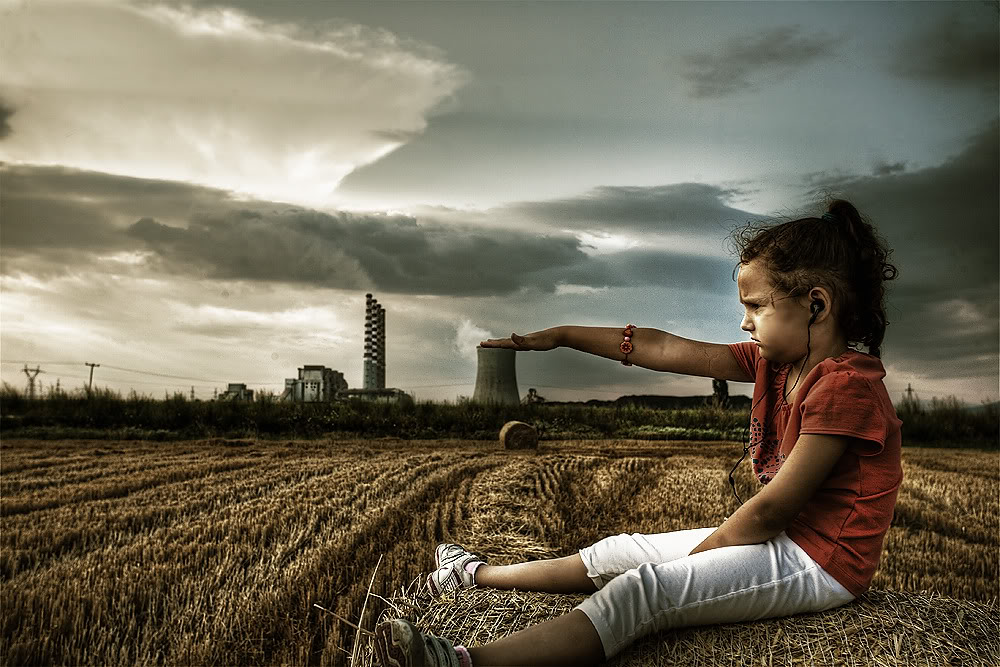

If you haven’t already come across it, I suggest you check out the Dark Mountain for people and thinking very much in this vein.
Thanks Gavin, yes, I’ve been involved with the wonderful Dark Mountain Project from early on. See you at Uncivilisation?
Very interesting and enjoyable- I was at the same premiere I believe (in the Showroom cinema?) and got a lot out of the film, although it did feel a little amateur in terms of production. Did you notice that Franny Armstrong mentioned this blog in her Age of Stupid mailing this week? I thought you might be interested.
Hi Lily,
No, this was a screening at the Two Degrees festival at the Toynbee Studios in London, but I’d be fascinated to hear if the Q&A at your showing went in a similar direction?
Didn’t notice Franny’s mention for this blog, no – did I really miss that? – although I remember her mentioning Just Do It (Emily James was also an Exec Producer on Age of Stupid). I’ll have to check back!
I hope so, if I haven’t left it too late to get tickets…
This has really left me thinking, and struck more than a few chords with me. I’m in a bit of a listening phase myself at the moment I think.
I think the reason I would say no connected to this question/argument is because the assumption is that therapy is “just” about self-discovery and self-understanding….Therapy can be (and I’d argue) and should be about much more than that. I think activism CAN definitely be part of therapy but it’s not just therapy….and certainly not “just” therapy.
…..course this comes from a therapist;)
Shaun, this post stops just short of bringing tears to my eyes. You just summed up a thought and feeling that for years has seemed so so inescapable to me as to be nailed to the inner space between my eyes. The darkness of feeling like is’t all for naught has managed to systematically catch me every couple of years. I’ll be plugging along with that year’s attempts at saving the world, but I’ll get burnt out and be consumed by the treacle-like sense of inevitable failure. Then I’ll loose it for a bit until something stirs me from my paralysis. Most recently it was Just Do It. Almost a year ago now when I first heard about the project, I knew that it’s message could make a difference. Make a few more people realize that they can stand up, that they don’t have to wait for someone else to fix it. It could make a few people think more about why this world seems to have grown so dark. And then a few more people realize that the only way to take care of themselves is to take care of the world. Today I’ve dedicated myself to getting it’s message out. To making sure that 1,00,00 people watch this film and hoping it spurs those feelings in them too. anyone else who wants to help, please email me at msmollyjames@gmail.com.
Shaun thank you for taking the time to post up such thoughtful comments. I was at the showing too, I’ve been finding attending activist/campaign related events very painful at the moment. I was outside afterwards feeling the sense of years worth of pain, frustration and in a big well of tears and feeling embarrassed at being ‘a mess’ and feeling a bit of a imposter.
It can be easy to lose hope, to feel that the ‘fight’ is a pointless one, that the system keeps on grinding and spits people out as chafe. I’ve withdrawn from the world of activism in the last couple of years -around the time the film was being made I was experiencing the beginnings of life and activism burn out and melt down – very much went wrong in many areas of my life and at this moment I am working at it, going through therapy to understand the mechanisms of what this all means to me- activism and the larger questions. The whole process is painful but I want to nurture my soul, save myself, fight for those things that I am always externalising onto others and the world at large when it is really me that is needing the saving. I have hope that when I feel strong enough I will come at direct activism from a whole position that adds to me rather than subtracts and I can feel the use in what I am doing in the short term and the longer term ‘chipping at the block’ kind of actions.
I am in a listening phase too but more of an inwards listening to the internal workings, listening to the world and watching it pass with the ultimate aim to see the beauty in things again to be inspired and to do. I have courage and that will bring me back on track.
Hey everyone – thanks for your comments. I’m delighted that my post has struck so many chords out there. Gives us all something to hear during all these listening phases anyway, eh? 😉
@Paul Duffield – you know where I am if you fancy a conversing phase any time soon. Miss you.
@Kara – Yes, thanks, certainly didn’t mean to disparage therapy, hence the “” marks. Therapy can be a wonderful and important thing. And just as we’re all activists, I think we’re all therapists! If I’d been phrasing the question myself, I’d probably have gone with something like what I wrote above: “are we ever only pretending to be doing this to change the world, when really we’re just trying to make ourselves feel better about the understanding that we can’t?” But the question as asked hit me powerfully, so it was probably just the question that needed to be asked, for my ears anyway.. Out of interest, given your expertise in the area, what would you say that therapy should be about?
@ Molly James – Gah, will have to try harder for those tears 😉 Actually, what you’ve just described there is exactly what I felt when I discovered that Wendell Berry quote, just a huge sigh of “ahhhhhh…”, the relief of finding a truth that I’d be longing and striving for. Of hearing something that my mind was exactly ready to receive and appreciate. Once I’m doing things because they’re simply who I am, not because of what I hope they’ll achieve, burn out tends to slip away. I’ll let you in on my all-time favourite quote (and I do like quotes!):
Don’t ask what the world needs. Ask what makes you come alive, and go do it. Because what the world needs is people who have come alive (Howard Thurman)
Manna from heaven for me that one – and thank you for your efforts. Maybe I heard about this film because of you? 🙂
@Grace: My pleasure. The thoughts demanded to be posted! And thanks for sharing your trials. It sounds to me very much as though through your bravery you’re uncovering some deep wisdoms that much of the world of activism is hungering for. Burn out is so terribly common, as even the comments here illustrate.
You can’t hurry inspiration, but I’ve no doubt that as you listen you’ll find that beauty in life, and the place where your gifts and that hunger intersect.
Great post Shaun, something we’ve both discussed over the last six months and I’m glad your still evolving your views on it.
May I add my twopence worth? I think try to predict the future outcomes of our actions too much, and over-analysis intellectualise life beyond what is even intellectually wise. Who knows what the domino effect is of any of our actions, either on ourselves or on the world. When I picked up a packet of organic tofu for the first time in a Morrison’s supermarket 10 years ago, I had no idea that it would lead to a series of events which would bring me to setting up a moneyless village with some tosser with Scouse blood. It just felt like what I needed to do at that moment. Who knows what the domino effect of the climate camps were on the people involved or the world … maybe there was a Rosa Parks in there …
When I went to Dark Mountain last year at the last minute, after being almost certain to pull out, I had no idea I’d meet your good self. When I ended up doing an interview for a newspaper in Europe about 18 months ago, after again only agreeing to do it after a push from the publication, I had no idea the people I am about to go and explore moneyless living with would be reading it and hence come to see me in Portugal. I just had a inexplicable urge to do it from nowhere.
When Rosa Parks refused to get up off a seat, she had no idea she would spark a revolution. When Gandhi took a law degree in London, he had no idea what it would lead to. And so on and so on.
The consequences of our actions are unknown, We may undertake thousands of actions without achieving anything (from our limited perspective), until one action acts as a tipping point for a revolution. In hindsight, we may see how it was coming to that point, but until then it just looked like one succession of fairly unsuccessful actions.
I believe that all we need to concern ourselves with is following what is in our hearts at any moment, following our intuition, keeping love as our highest ideal and striving to have as little discrepancy between head, heart and hands at any moment.
I’ve no idea what the purpose is for my next stage in the adventure, but it 100% feels like the right step. But the real purpose of it may not reveal itself for 20 years, or less, or more. Maybe its just to meet one person who will say one thing that will completely transform my worldview and enable me to do whatever I need to do. Who knows?
My point is we would be wise to just follow our intuition at each moment, and these moments combined will bring us to our destiny, whatever they are.
Is the world as we know it fucked? Of course! Is that a good or a bad thing? Neither, just is. So what is the purpose of us standing up for what we believe in if it is fucked anyway? To compliment what Berry and Wellstone said, I’d said the point is ‘we don’t know what the point is, we just know it is in our hearts and souls to do it’.
Doing what is in your heart at any given moment, without any evidence of it having what we see as a positive outcome, is our way of saying “I trust you Nature.”
So from here on I aim only to follow my intuition at any given moment (whatever it is telling me and even if the intellect I consult disagrees) and let it lead me where it may. I trust you Nature.
I’m rambling. Shut me up. Love.
Hey Mark, thanks for that – a timely reminder. Oddly enough, I just found myself responding to (well, more agreeing with!) your comments on another friend’s blog, so I’ll just copy what I added here:
Let’s trust to that strange wisdom that we seem to be able to access, which is deeper than that in all our brains’ analysis, and see where we end up. Doing so certainly makes me feel truly alive, if nothing else 🙂
I find that it’s quite useful to remind myself from time-to-time just how stymied my brain is by trying to understand and take into account everything that’s happening in our world. Once I remind myself of that, I think there are two possible responses:
i) To pretend that it’s not true, ignore the bits of life that confuse me and press on with the bits that seem to make sense until they run up against reality with an unpleasant bang.
ii) To decide that my brain, useful though it is, just isn’t up to this one, and to take advice from a different part of the human condition!
…
Oh, and yes, Mark, shut up 😛
Good post, thank you. Did the Just Do It film include any interviews with people who had left Climate Camp/Plane Stupid, and explored the individual and collective trajectories of hope/involvement/exiting/burn out? When I asked at the DM gathering in 2010 the film maker said she thought it was a good idea and would consider it.
Much of what calls itself activism is therapy. I made a video that may amuse/irritate you, called “Welcome to the Smugosphere” about this…
http://www.youtube.com/watch?v=NArQ6lCwEes
@ Shaun – yeah I realised too that my little brain certainly wasn’t up to this one – the chaotic nature of Life means its impossible to predict the outcomes of any of our actions, and all you end up doing is going over and over every seemingly flawed course of action. I say flawed because I think we have to accept there is no rosy solution here, each scenario if there is a solution at all.
I used to think of the brain as ‘my boss’, I now think of it as ‘my consultant’. 🙂 x
@ Dwight Towers – Thanks. No, I don’t recall any interviews in the film with people who had moved on to other things. The main contact with any sense of futility was that scene I described above. As you say, it would have been an interesting avenue to pursue further, which I think is why I felt the need to raise the broader issue in the Q&A, and then, later, to write about it here.
And thanks for the video – that describes exactly the kind of symptoms I’m talking about at the end of my post, although the suggested solutions in your video don’t entirely satisfy me. I’m not convinced that strict structures, fines etc. are the only way – or even the best way – of creating a culture of seriousness about achieving concrete outcomes. But your identification of the problem feels spot on to me. The best approach to the problem is exactly what I’m exploring at present.. 🙂
Hey Shaun,
glad bits of the video were useful (I love that David Rovics song!!). Agreed, the solutions proposed in the video are not enough, or even implementable.
How do we create a culture of seriousness while not losing the play, the camaraderie etc etc of NVDA etc. These are questions I grapple with, and I know the Leaving Babylon author and commenters do too. Are you aware of rhizomenetwork.wordpress.com – they do lots and lots on this sort of thing too. All best wishes. DT
We’ll get there, wherever there is 🙂 And yes, thanks, I know Rhizome well.
Hi Shaun, and thanks from me too for this great and thought-provoking article (and of course the link too ;-)) – you’ve woven an eloquent thread through nuanced dimensions of the doubt that plagues so many of us from time to time.
The Thurman quote (‘Don’t ask what the world needs. Ask what makes you come alive, and go do it. Because what the world needs is people who have come alive’) is hugely nourishing (hadn’t heard it before: thank you). Also very much enjoyed Mark Boyle’s descriptive suggestion for how to navigate all this; keeping a focus on ‘following what is in our hearts at any moment, following our intuition, keeping love as our highest ideal’ is another invaluable lodestone.
In fact I recently tried a bit of that, by sticking my neck out about a local issue I consider crucially important at the risk of disapprobation from more conservative neighbours and friends (which did indeed duly follow). So far there have been two unexpected outcomes: new doors and networks opening to replace the old ones slowly closing and also a deep (and unfamiliar!) sense of calm that’s helping me make light of the storm playing out around me. I think this is worth trying more often 🙂
Very best, Vanessa x
hi Shaun,
in a similar line of thinking, i have this idea of one way to help on this ACTION is using Arts as a tool to inspire, to motivate a community for social change, for taking action, to create visions, to catalyze critical thinking. I am talking about visual arts, music, dance, poetry.
And this is not new, music has being used for similar purposes for a long time, remember the We Shall Overcome song? or Picaso’s masterpiece Guernica ?
i think such ideas should become key components in a Transition movement.
We do need action, enough is enough !
thanks,
Thanks Norberto – totally agree on the importance of the arts (I’d go completely gaga without dancing about it all regularly!).
Which is very much where the Dark Mountain Project comes in – check it out if you haven’t already, and maybe I’ll see you at their Uncivilisation festival in August?
Also, here’s a post I did last year, collecting together some of the art and music that is speaking to our predicament – maybe you’d like to contribute?
https://www.darkoptimism.org/2010/06/03/the-art-and-music-of-our-worlds-predicament/#post-2029
Nice post – good thoughts and comments. I’ve been following this enquiry up for about a year and asking all sorts of people how they handle the rational ‘knowledge’ that their activist activities (from planting veg to direct protest) won’t ‘save the world’. Answers ranged from ‘it’s the struggle’ to ‘well, you see, life is a paradox’. They ranged around our personal expectations from our activities, rooted in our needs. And some activists don’t give a hoot what they’re fighting, as it’s a fight inside them they’re fighting, manifested in many ways.
There’s a lot in this, and I’m co-facilitating a fishbowl session at the Transition conference next weekend on the subject: What do success and failure mean? It would be grand if you could bring these thoughts with you, if you’re coming…
“Most things that are therapeutic aren’t therapy” – Erving Polster (therapist).
People doing things because they make their lives better is usually a good thing I think. It can feel good to improve other people’s lives. It feels good to create an object of beauty.
“If you can’t dance to it is not my kind of revolution” – Emma Goldman (anarchist).
Most activists want to change the world to a state where it is more delightful. I can’t see the problem with this. If the journey is also enjoyable I can’t see the problem with this.
Related: Give Up Activism http://libcom.org/library/give-up-activism
I´ve just found this blog, and it´s exactly what I need to read right now! Thank you so much for your thoughts!
My pleasure Charlott, glad to hear it connected with you 🙂
Here’s a working link to the movie: https://vimeo.com/57833461